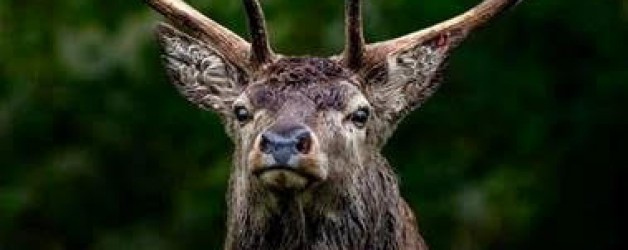In advance of tomorrow’s General Election we contacted the main political parties with a series of questions on some of the key issues impacting deer and deer management in Ireland.
There are over 100,000 licensed firearms holders in Ireland, these individuals engage in a wide range of country pursuits and make an important contribution to rural life, land use, and habitat management, benefiting the wider economy.
A sizeable portion of licensed firearm holders, our members, undertake a key role in partnership with landowners and the various land use sectors in managing deer numbers at sustainable levels to minimise negative impacts on farming, forestry, and the wider ecosystem.
Deer are a protected species under our Wildlife Acts and an important part of natural heritage with deer present in Ireland since Neolithic times. Deer managed at sustainable levels are an economic, visual, and sporting asset, however where deer numbers become excessive, they can have negative consequences for farming, forestry, the wider ecosystem. In the absence of a natural predator, it falls on licensed deer managers to manage their numbers.
In the 12-month period up to February 28th, 2023. 78,025 wild deer were culled under licence by both professional and part-time deer managers, firearm holders. Despite claims of growing deer populations, in the absence of deer density data, the true deer population is unknown in Ireland.The current levels of annual deer culling maybe appropriate, require additional culling, or have negative consequences for the future conservation status for wild deer.
Anecdotal evidence from those involved in deer management would suggest a small number of localised areas have excessive deer numbers, mainly on state and semi state lands, where in most areas’ deer are being managed at a sustainable level with robust deer management practices on the majority of private property. County Wicklow accounts for 29% of national cull.
Our questions to the political parties
A recent survey of those involved in deer management undertaken by the Irish Deer Commission show 95% of respondents are concerned about the future of wild deer in Ireland, the level disinformation surrounding deer, their management, and government policy on deer management. Based on these results and requests for guidance in advance of the General Election we contacted the various political parties to gain an understanding of how they would approach relevant issues impacting deer and their management.
We asked for a response to the following questions:
Q1. In recent years we have seen a campaign of disinformation about wild deer on matters such as Bovine TB (see scientific evidence that nothing suggests deer spread TB from Dr Eoin Ryan, Department of Agriculture, Food, and the Marine) and claims of over population. If in government or opposition, do you agree that statements and decisions regarding the management of our wild deer should be scientific, and evidence based and not because of political comment or land use sector pressure?
Q2. An EU IAS Committee has recently recommended that Sika deer be reclassified as an Invasive Alien Species; such a reclassification would remove the current culling seasons from August 1st to April 30th annually. The current culling seasons exist for our three deer species based on animal health and welfare grounds, and best practice deer management, for example dependent and newborn deer at certain times of the year lactate on its mother and if the mother is culled the young would suffer death from starvation. Sika deer have existed in Ireland since 1860 and are widespread throughout Ireland, whereas the EU IAS committee decision was based on recent introductions of Sika deer in other EU member states. All deer regardless of when they were introduced or where they originate from must be managed to avoid negative impacts where their numbers become excessive.
A derogation is available to each member state if any of the following criteria is met, 1. technically unfeasible, 2. cost benefit analysis, 3. eradication methods not available. All three criteria would apply to Ireland, and if Government attempt to implement such a reclassification it would cause widespread animal welfare issues, and cause deer to spread.
If in government or opposition would implement or support the application of the derogation available?
Q3. If in government or opposition would support the protection of rural traditions such as hunting and shooting through policies that recognise their essential contribution to conservation and sustainable land management?
Q4. Wildlife Crime such as the illegal killing of deer known deer poaching is a growing problem in Ireland. If in government or opposition would you support policies to combat wildlife crime in Ireland?
The Fianna Fáil Party
Firstly, it should be noted that neither the Minister for Housing, Local Government and Heritage, Darragh O’Brien, nor the Minister for Agriculture, Food and the Marine, Charlie McConalogue, have given any indication that they are seeking changes in legislation in relation to hunting and shooting.
Secondly, the National Parks and Wildlife Service (NPWS), an Executive Agency of the Department of Housing has primary responsibility for nature conservation, wildlife protection and the presentation and preservation of our National Parks and Nature Reserves in Ireland.
Combatting wildlife crime is a priority for the NPWS. They work closely with An Garda Síochána and the Irish Society for the Prevention of Cruelty to Animals (ISPCA) and this is recognised in Joint Protocols with both organisations.
The NPWS recognises the critical role the public has to play in reporting suspected wildlife crime to the authorities.
Promoting general environmental awareness is undertaken by the NPWS liaising closely with the Heritage and Biodiversity Officers in Local Authorities.
As part of the Department of Housing, Local Government and Heritage, the NPWS also has a role in relation to development proposals – both on land and offshore, and across various sectors – where nature conservation issues and concerns arise. This role is primarily advisory, whether in the context of statutory notifications or referrals to the Minister by various consent authorities, or in the context of non-statutory pre-application consultations received.
Finally, you may be interested to learn more about our biodiversity policies. If returned to Government, Fianna Fáil will:
- Fund the NPWS to purchase land for the establishment of new National Parks.
- Acquire key national heritage assets, prioritising State acquisition at both national and local level.
- Further develop and strengthen the NPWS as Ireland’s leading natural heritage agency.
- Extend the remit of the NPWS to include the management of the Curragh Plains to ensure its ecological, archaeological and cultural uniqueness is nurtured and protected.
- Create an NPWS internship programme across all levels focused on traditional skills, ecology, wildlife rangers and advanced nature research.
- Amalgamate all designated non-timber productive Coillte lands into NPWS so they can be managed for nature.
- Implement a national invasive species elimination programme.
- Extend the network of Local Authority Biodiversity Officers nationwide.
The Fine Gael Party
The Fine Gael manifesto reflects the Party’s position on many of the issues which you raise.
Environment and Nature:
-
- Ensure appropriate staffing of the Wildlife Control Programme: We will fully resource the Irish Deer Management Strategy Group action plan, in which you and other representatives of the Irish Deer Commission were involved.
- Develop Ireland’s Nature Restoration Plan: Fine Gael will prioritize restoration actions on State lands and consult with farmers on voluntary measures.
- Support agriculture on High Nature Value lands: Ensuring farming remains viable in these areas.
Animal Welfare:
- Introduce tougher sanctions for animal welfare breaches: Well-resourced inspection teams will enforce sanctions to protect animal welfare.
- Implement the Nature Restoration Law with Community Engagement: Ensuring the law is fairly applied with sufficient funding and consultation with local communities.
- Set Geographic Biodiversity Targets: Committing to clear targets within the National Biodiversity Plan.
Fine Gael engages with many representative groups and organisations as we formulate policy. We thank you for your contribution and we would encourage your continued engagement with us.
The Fine Gael Manifesto has already noted the issues, and indeed the input from your organisation via the Irish Deer Management Strategy Group.
At this point in the electoral process, it would not be appropriate to try to outline in more detail the specific future actions which might be taken. That will be a matter for the Programme for Government and for the next Minister responsible to decide upon.
We have however noted this correspondence and hope to be in a position to reflect the points raised as a Party within the next government.
The Green Party
The response we received was “we may not be able to answer such detailed questions before polling day.”
Sinn Féin, Labour Party, Social Democrats
Did not reply.
Other responses
Wexford Regional Game Council received the following replies from local candiadates in Wexford constituency.
Wexford Constituency Rankings
Strongest Supporters:
Verona Murphy (Independent): Unwavering support with a proven record and plans for a public forum to address rural issues.
Jim Codd (Aontú): Lifelong enthusiast and deeply committed to rural pursuits.
Michael Sheehan (Independent): Fully supportive with a consistent track record.
Supportive:
Cathal Byrne (Fine Gael): Recognises rural pastimes as essential to community life.
Bridín Murphy (Fine Gael): Supports rural traditions when conducted safely and humanely.
Awaiting or No Response:
George Lawlor (Labour): Promised a response but has yet to follow through.
Johnny Mythen (Sinn Féin): No response despite multiple efforts to contact him.
Wexford/Wicklow Constituency Rankings
Strongest Supporters:
Pat Kennedy (Fianna Fáil): Strongly supports rural traditions as a rural candidate from South Wicklow/North Wexford.
Fionntán Ó Súilleabháin (Sinn Féin): Expresses personal connection and full support for rural traditions as part of Ireland’s heritage and conservation efforts.
Supportive:
Malcolm Byrne (Fianna Fáil): Acknowledged support for the NARGC’s work and past advocacy in the Seanad.
Brian Brennan (Fine Gael): Appreciates the value of rural pastimes and is keen to engage further if elected.
No Response:
Peir Leonard (Independent): Did not respond to any of our attempts to contact her.
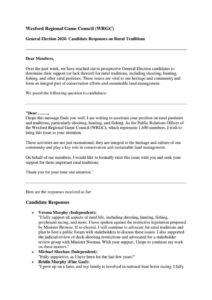
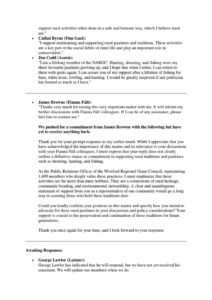
The National Association of Regional Game Councils recieved the following replies in the Galway, Cavan, and Monaghan constituencies.
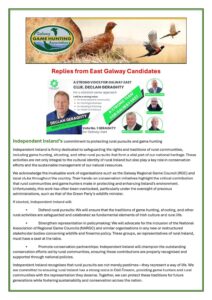
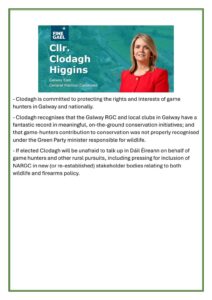
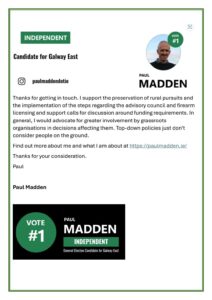
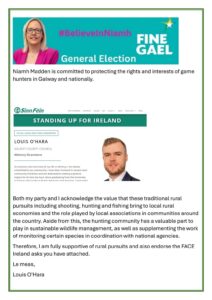
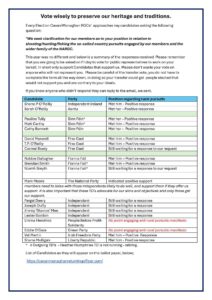
Conclusions
While some rural based election candidates were forthcoming in their support for rural pursuits such as deer management, the main political parties avoided direct answers or did not reply, which suggests they either have no policy, no knowledge on the topic, or our concerns are not an issue for them, it is also possible they did not want to be seen to support licensed deer management or any hunting activity. The issue of combating wildlfie crime such as deer poaching received universal support from the parties who did respond.
While many responses were disappointing or avoided the questions, this excercise has certainly marked the cards of the incoming government on the intentions and support for rural pursuits such as deer management.
For further details on how to apply for IDC membership CLICK HERE

